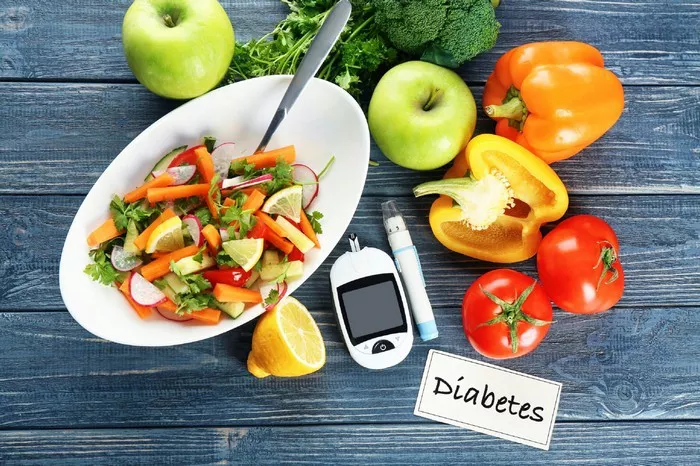Type 2 diabetes is a chronic metabolic disorder characterized by elevated blood sugar levels due to either inadequate insulin production or the body’s inability to effectively use insulin. It accounts for the majority of diabetes cases globally and is associated with various health complications, including cardiovascular disease, kidney damage, and nerve damage.
Several factors contribute to the development of type 2 diabetes, with diet and lifestyle playing prominent roles. These include obesity, physical inactivity, genetics, age, and ethnicity. However, diet and lifestyle factors are among the most modifiable risk factors, making them crucial targets for prevention strategies.
Foods Linked to Diabetes Risk
Certain dietary choices have been linked to an increased risk of developing type 2 diabetes. These include:
Sugary Drinks: Beverages high in added sugars, such as sodas, fruit juices, and sweetened teas, have been associated with a higher risk of diabetes due to their rapid absorption and impact on blood sugar levels.
Refined Carbohydrates: Foods made from refined grains, such as white bread, white rice, and sugary snacks, can lead to spikes in blood sugar levels and insulin resistance over time.
Red and Processed Meats: Consumption of red and processed meats, such as bacon, sausage, and hot dogs, has been linked to an increased risk of diabetes and other chronic diseases, possibly due to their high saturated fat and sodium content.
Scientific Evidence
Numerous studies and expert guidelines support the association between these foods and an elevated risk of type 2 diabetes. For example, a systematic review and meta-analysis published in the journal Diabetologia found a significant positive association between sugar-sweetened beverages and the risk of developing type 2 diabetes.
Mechanisms
The mechanisms by which these foods contribute to diabetes risk vary but often involve their impact on blood sugar levels, insulin sensitivity, and inflammation. For instance, sugary drinks can lead to rapid spikes in blood glucose levels, while refined carbohydrates can cause insulin resistance over time, both of which are key factors in the development of type 2 diabetes.
Healthy Alternatives
To reduce the risk of type 2 diabetes, individuals can opt for healthier alternatives to these foods. Instead of sugary drinks, they can choose water, herbal teas, or sparkling water with a splash of citrus. Whole grains like brown rice, quinoa, and oats can replace refined carbohydrates, providing more fiber and nutrients. Lean protein sources like poultry, fish, tofu, and legumes can replace red and processed meats, offering heart-healthy options.
Dietary Patterns for Prevention
In addition to individual food choices, adopting dietary patterns known to be beneficial for reducing diabetes risk can be advantageous. The Mediterranean diet, characterized by high consumption of fruits, vegetables, whole grains, nuts, seeds, and olive oil, has been associated with a lower risk of type 2 diabetes and improved glycemic control. Similarly, the DASH (Dietary Approaches to Stop Hypertension) diet, which emphasizes fruits, vegetables, lean protein, and low-fat dairy, has been shown to reduce the risk of diabetes and cardiovascular disease.
Lifestyle Modification
Beyond dietary changes, lifestyle modifications such as regular physical activity and weight management are essential components of type 2 diabetes prevention. Engaging in regular exercise helps improve insulin sensitivity, control blood sugar levels, and maintain a healthy weight. Additionally, achieving and maintaining a healthy weight through a balanced diet and portion control can further reduce the risk of developing diabetes.
Consultation with Professionals
It’s essential for individuals concerned about their diabetes risk to consult with healthcare professionals, including registered dietitians or certified diabetes educators. These professionals can provide personalized dietary advice, help individuals set realistic goals, and support them in making sustainable lifestyle changes.
Myths and Misconceptions
There are several myths and misconceptions surrounding foods and diabetes, such as the belief that people with diabetes must avoid all carbohydrates or that sugar substitutes are harmless. Addressing these myths and providing accurate information can help individuals make informed choices about their diet and lifestyle.
Conclusion
While certain foods have been linked to an increased risk of type 2 diabetes, adopting a balanced diet rich in whole foods and following healthy lifestyle habits can significantly reduce this risk. By emphasizing nutrient-dense foods, promoting dietary patterns known to be beneficial for diabetes prevention, and encouraging regular physical activity and weight management, individuals can take proactive steps to safeguard their metabolic health.
Related Topics:
Do Not Eat These Food, If You Have High Blood Sugar























